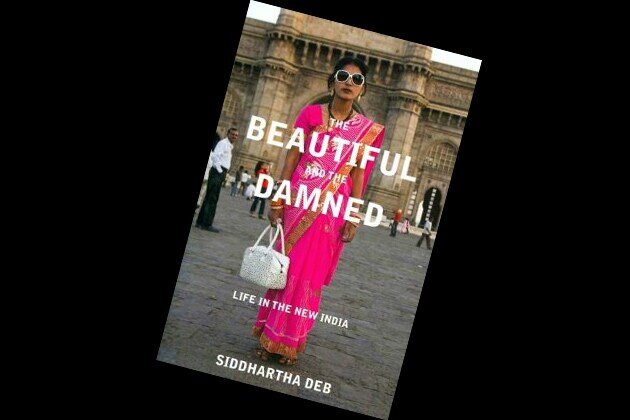‘Why I took on Arindam Chaudhury’
Siddhartha Deb’s latest book, "The Beautiful and the Damned," paints a picture of present-day India through the stories of five individuals who span the country’s social, economic and geographical gamut.
The book’s first chapter, focusing on the rise of businessman Arindam Chaudhuri, was excerpted in The Caravan, a Delhi-based monthly magazine. Mr. Chaudhuri is the director of the Indian Institute of Planning and Management, a popular privately-run network of management schools.
The article gained more attention when the IIPM filed a lawsuit against Mr. Deb, his publishers Penguin India, The Caravan and Google India for “grave harassment and injury." (You can read more about Mr. Deb’s publishing saga in this New Yorker article.)
The Indian edition of the book, published by Penguin India, was released without the first chapter. Mr. Deb said the lawsuit alleges that he and other defendants are working for IIPM’s competitors. This is what The Caravan had to say about the case. Mr. Chaudhuri and an IIPM official did not respond to requests for comment.
India Real Time’s Siddhartha Vaidyanathan spoke to Mr. Deb in New York, where he is an associate professor at The New School. Edited excerpts.
Why did you choose Arindam Chaudhuri as the character through which you could tell the story of the new elites in India?
I believe IIPM are the biggest advertisers in the print media. They’re in your face every day. Arindam is like the face of a new India. And it makes a lot of people uncomfortable because IIPM is so blatant, so unapologetic about its aspirations.
I might be critical about his ideas and ways of training his students but it’s not my business to say if the IIPMs should run or not. That’s the government’s business. I’m interested in how it represents a new India. Some of the critiques Arindam makes about the Indian Institutes of Management [the premier state-founded business schools in the country] are correct. He’s an intelligent man and has some valid points to make.
Were you surprised to hear about the lawsuit?
I was. The lawsuit has very little to do with facts, which was surprising. The suit alleges that me, Caravan and Google are working for IIPM’s rivals. This is in the kind of absurd realm of paranoia and conspiracy. I don’t even know if they seriously believe it themselves. I would very much like to see how they prove this in court.
But it’s not very surprising that the one chapter in the book which is about the rich and the powerful has been a problem in India. It has a lot to do with the fact that there’s a culture of cringing to the rich and powerful. I’m not for bans. I think even if a book was casteist or racist or sexist or anything people don’t agree with – I feel it should be in the public sphere so that we can argue about it.
Why did you choose to tell the story of India through characters from different geographical regions and classes?
My strengths are a fiction-writer’s strength. I wanted depth to the characters, which would allow truth to emerge. There are five central types of characters: the new rich through Arindam Chaudhuri; the new middle-class through an engineer in Bangalore; a Dalit farmer in Telangana, one of the 450 million farmers who seem to be disconnected from the rest of the country; a migrant worker in Bihar, part of the large, floating population which is possibly around 100 million; and lastly a Manipuri waitress working in an upscale Delhi restaurant.
So it gave me contrasts – men and women, rich and poor, farmer and middle-class worker, urban and rural, north and south - and northeast, too.
You tell stories of people who are from the margins. How does this relate to your background?
I think I have an angular vision into India. I feel slightly removed from the center. Growing up in Shillong in the ‘70s and ‘80s, I was physically removed from India’s big cities. I think the angular vision allows me to question the received ideas like India Shining and India, a rising power. For the book, I went to places like Telangana and Manipur for my research. I have a skeptical temperament and like to identify with marginalized identities.
This piece was first published in the Wall Street Journal website
